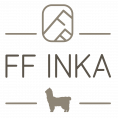Pachamama
With our products we want to make a small contribution to make the world a better place.
The indigenous Andean communities (the Quechua) call world Pachamama, which literally translates into world mother, the goddess of the world. For the Quechua people the world is more than just the place they live in, for them it is an actual living, breathing organism in which we are only a small part. This holistic philosophy defines their relationship with their land, their animals, and their environment. It is the reason why wool from traditionally kept Alpacas is a sustainable and eco-friendly product especially compared to sheep wool and cotton fibres.

Ethically made
Our “100% Baby Alpaca” wool is ethically made, supporting local communities, and driving a valuable income into underdeveloped regions.
Thanks to a highly local production from raw fibre to the finished product the largest part of the value chain lies within the Andean communities. Once finished the products are transported, often on the back of Alpacas, to larger markets in the white city of Arequipa or in the Cuzco, the former capital of the Inka.
All this helps to increase the quantity of jobs in Peru because to finish the product a cooperation of several skilled workers in different sectors are needed: The alpaca breeders, shearers, people who sort and categorize the fibres and people who dye and weave the wool.
Many of them are women and mothers who can align family and work and increase the family income. Ethically sourced wool also supports people to continue their traditional techniques which they pass on from generation to generation and encouraged them to maintain their way of life.
Sustainably Farmed
We source our “100% Baby Alpaca” products from family run farms who care of the animal using traditional techniques which aim to harm neither animal nor environment.
The way Alpacas are kept here differs very much from what we would consider a farm animal in Europe. Alpacas are the greatest treasure of their owners and in the same way that they have a close relationship with their environment, they have a very close relationship with their animals. They live together with their families and form a very strong personal bond with them. During the day the animals are free roaming, running, and enjoying their freedom in the Andes. In the night they are going back at night to sleep in their shelter which is a protect and safe place.

